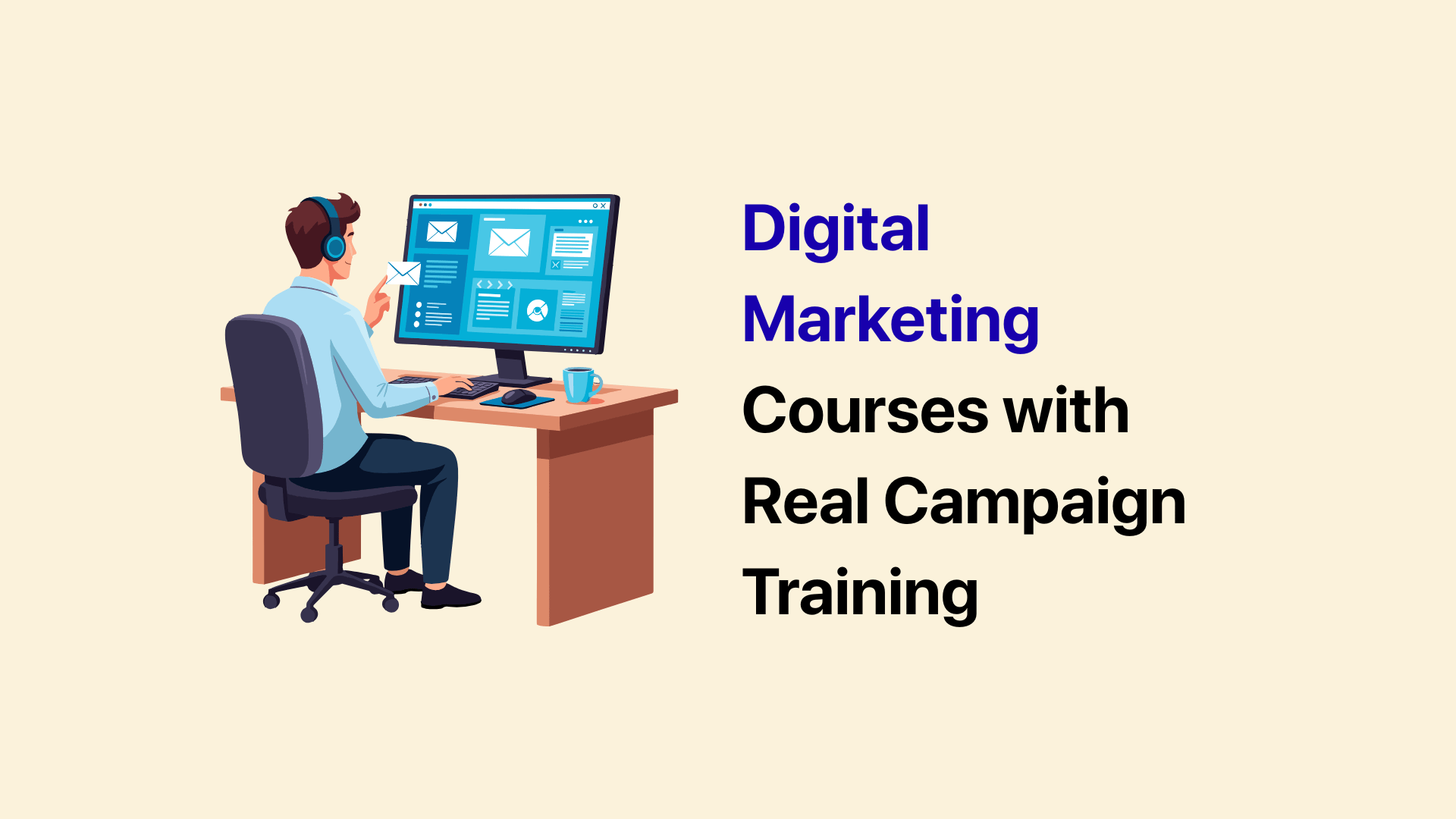The Power of AI in Shaping Modern Marketing Strategies
The digital marketing world is changing fast in 2025. Artificial intelligence is making big waves, changing how companies reach out to customers. AI is now a real part of marketing, making a big difference in many industries.
Today, digital marketing uses AI to offer more personal and efficient services. Tools like predictive analytics and automated content creation are helping businesses get ahead. They're finding new ways to compete thanks to machine learning.
2025 is a key year for marketing, thanks to smart algorithms that understand complex data. Brands can now make very specific campaigns. Big names like Google, Meta, and Adobe are at the forefront, creating AI marketing tools that keep up with changing trends.
AI is not just an improvement in digital marketing; it's a whole new way of connecting with customers. Both small and big businesses are using AI to make their operations better. They're improving customer experiences and growing in the digital world.
The Dawn of AI-Powered Marketing Transformation
Digital marketing has changed a lot with the help of artificial intelligence. Marketing now uses smart AI tools instead of old ways. This change helps brands talk to customers in new and better ways.
AI has made advanced marketing tools available to everyone. Even small businesses can use powerful tools that were once only for big companies. This opens up new chances for growth and creativity.
a. Predictive consumer behavior analysis
b. Real-time personalization engines
c. Automated customer interaction systems
d. Advanced data processing capabilities
Companies like Netflix and Amazon are leading the way with AI in marketing. They use smart algorithms to understand what customers like. This helps them suggest content and create special experiences for each person.
The COVID-19 pandemic made businesses turn to AI fast. Marketing teams found AI to be key in tough times. It gave them insights, automated tasks, and helped keep customers connected.
Many think AI will replace creativity, but that's not true. AI helps marketers do their jobs better by handling routine tasks. This lets them focus on creative and strategic work.
Understanding AI's Role in Modern Digital Marketing Strategies
Digital marketing is changing a lot thanks to artificial intelligence. Machine learning is making it easier for brands to connect with their customers. AI is now key for businesses wanting to stay ahead.
Intelligent algorithms are changing marketing automation. They make it possible for brands to offer more personalized and efficient services. Today's marketing teams use AI to:
a. Analyze complex customer data patterns
b. Predict consumer behavior with remarkable accuracy
c. Create dynamic marketing campaigns
d. Optimize real-time customer interactions
AI-powered marketing automation makes digital strategies more efficient. Customer data platforms now use machine learning to combine data from different places. These systems learn and improve over time, giving marketers valuable insights.
To use AI in marketing, you need good data management and the right technology. Having clean data is crucial for AI to work well. It helps marketers make quick, smart decisions.
AI is more than one tool; it's a whole system changing digital marketing. By using intelligent algorithms and machine learning, brands can offer better, more personal experiences. These experiences connect with today's consumers.
Personalization at Scale Through Artificial Intelligence
Artificial Intelligence is changing digital marketing with new personalization strategies. Customer segmentation is now more precise than ever. This lets businesses offer experiences that really speak to each customer.
AI helps companies make experiences unique by looking at lots of data. Algorithms can guess what customers like, making marketing more effective than before.
a. Analyze customer browsing history and engagement metrics
b. Generate dynamic content based on predicted preferences
c. Create personalized recommendations across multiple channels
d. Optimize marketing messages in real-time
Top e-commerce sites use AI to change how they talk to customers. For example, virtual assistants in e-commerce enable realistic interactions across all stages of the customer journey. By knowing what each user likes, they can make shopping better. This leads to happier customers and more sales.
Smart machine learning lets marketers sort customers in new ways. These systems handle huge amounts of data. They build detailed profiles of customers, helping marketing get better.
But, keeping customer data safe is key. Good AI marketing balances smart targeting with clear data use. This keeps customers trusting and follows the law.
AI-Driven Content Creation and Optimization
The world of content marketing is changing fast with AI. AI copywriting tools are making it easier for businesses to create digital content. They can make high-quality materials quickly.
Now, content optimization uses advanced AI to analyze and create different types of content. These smart systems work well across many channels:
a. Automated content generation for blog posts
b. Dynamic social media caption creation
c. Precision email marketing copywriting
d. Targeted advertising text development
Even though AI is very efficient, it needs human input to work best. The best content strategies mix AI's power with human creativity and understanding of the brand.
New AI content platforms look at what works best. They give smart tips for better headlines, keywords, and readability. These tools help marketers make their content better with data.
Enhancing Customer Experience with AI Chatbots and Virtual Assistants
Businesses are changing how they talk to customers with new AI tech. Virtual assistants and chatbots now offer 24/7 support. They give instant, smart help to customers.
Today's chatbots do more than just answer simple questions. They use advanced tech to get what customers really mean. They can:
a. Understand the context and feelings behind what customers say
b. Give quick, correct answers
c. Chat with many customers at once
d. Get better with each conversation
Using AI for customer service is a big win for companies. It helps them talk to customers faster and make them happier.
There are many kinds of chatbots for different needs. Some follow rules, while others can change based on what customers need. Banks like Bank of America and stores like Sephora have seen great results from using these tools.
The future of talking to customers is all about smart, easy chats. These chats will understand and guess what customers need before they even ask.
Predictive Analytics and Consumer Behavior Forecasting
Predictive analytics has changed the game in data-driven marketing. It turns simple data into deep customer insights. This way, businesses can guess what customers will do before it happens. They move from just reacting to actually planning ahead.
Today's forecasting models use machine learning to understand big data. They look at many things like:
a. Purchase history
b. Online browsing behaviors
c. Seasonal purchasing trends
d. Economic indicators
Now, analyzing consumer behavior is more advanced. Businesses can guess what customers will do with great accuracy. They use this knowledge to create marketing that really speaks to each customer's needs.
The main perks of predictive analytics are:
a. Better lead scoring
b. Stronger customer retention
c. Smarter inventory management
d. More personalized customer experiences
Companies like Netflix and Amazon are already using these methods. They use customer insights to suggest products and content with amazing accuracy. Predictive models help businesses make better choices, cut down on waste, and connect with customers in a more meaningful way.
AI-Powered Social Media Marketing and Engagement
Artificial intelligence is changing social media marketing. It's making it easier for brands to connect with their audience. AI tools are giving marketers new insights and ways to engage.
Social media marketing is now smarter thanks to AI. AI tools can schedule posts based on what users like. This helps brands get more views and interactions.
a. Advanced social listening tools track brand mentions and sentiment in real-time
b. Influencer identification algorithms match brands with perfect content creators
c. Photo to Music feature transforms static images into engaging video content
AI helps target the right audience with deep analysis. It can suggest personalized content and track how well it does. This helps businesses improve their online strategies.
Machine learning finds trending topics and hashtags for brands. This lets marketers join important conversations. It boosts visibility and engagement.
The future of social media marketing is all about smart systems. These systems learn and get better over time. With AI, brands can make deeper connections with their online followers.
Programmatic Advertising and Smart Bidding Strategies
Programmatic advertising has changed how brands buy and improve digital ads. It uses artificial intelligence for real-time bidding. This lets marketers target audiences more accurately and efficiently.
Programmatic advertising's strength is in analyzing huge amounts of data quickly. AI platforms look at user behavior, demographics, and more to find the best ad spots and bids.
a. Automated bidding cuts down on manual buying mistakes
b. Real-time bidding lets for quick ad purchases
c. Advanced algorithms improve ad performance fast
Digital marketing now uses smart ad optimization that changes in seconds. Smart bidding, like Target CPA and Maximize Conversions, uses machine learning. This boosts ad return on investment.
Marketers can now target audiences with great precision. AI keeps improving campaign settings to boost engagement and cut down on ad waste. The future of digital ads is smart, quick, and automated.
Voice Search Optimization and Conversational Marketing
The digital marketing world is changing fast with voice search and conversational AI. Smart speakers and voice-activated devices are now key in our daily lives. They change how we talk to technology and brands.
To optimize for voice search, we need a smart plan. Users talk to devices like Amazon Alexa and Google Assistant in a natural way. They expect quick and accurate answers.
a. Optimize content for question-based search queries
b. Develop structured data for voice-activated marketing
c. Create concise, authoritative answers
d. Target long-tail conversational keywords
Voice commerce is becoming a big deal. Brands are making interactive voice experiences. They create custom Alexa Skills and Google Actions for easy shopping, booking, and customer service through voice.
Good voice search strategies understand what users want. They use schema markup and focus on local SEO. Marketers should make content that answers questions fast and right, to succeed in voice search.
As voice tech grows, businesses need to update their marketing. They must meet new consumer needs in this conversational AI world.
The Future of Email Marketing with AI Automation
Email marketing is changing fast thanks to artificial intelligence. Now, marketers can make email campaigns that really speak to people. This is a big step forward.
AI is changing how brands talk to their customers. It lets businesses send messages that fit what each customer likes and does. This makes communication more effective.
a. Send time optimization ensures emails arrive when recipients are most likely to engage
b. Advanced AI algorithms analyze user interactions to predict optimal content
c. Sophisticated email segmentation creates micro-targeted audience groups
Today's email marketing tools use smart AI to make emails come alive. An AI music creator can even create special music for emails. This makes emails more fun and engaging.
Marketers can now use smart email automation. These systems get better over time by learning from how people interact with emails. This helps make email campaigns work better.
a. Automatically trigger personalized re-engagement campaigns
b. Generate intelligent subject lines that boost open rates
c. Optimize email frequency based on individual user preferences
The future of email marketing is all about being smart, quick, and personal. AI is helping break down old barriers. It's making it easier for brands to connect with their customers in a real way.
Conclusion
The future of marketing is changing fast, thanks to artificial intelligence. AI is now key for businesses wanting to stay ahead. It helps them connect better with customers through smart tools and data.
Now, marketing is all about using smart tools to understand and act on data. This helps both small and big businesses. They can make their campaigns more effective and give customers a better experience. AI is seen as a way to make marketing better, not replace it.
Marketers who succeed will use AI wisely and keep real connections with people. The digital world keeps changing, and AI helps businesses keep up. It makes them more efficient, personal, and strategic.
Using AI in marketing is about getting better over time. First, find out what's not working in your marketing. Then, look for AI tools that can fix those problems. The best brands will use AI and still be creative and human.











